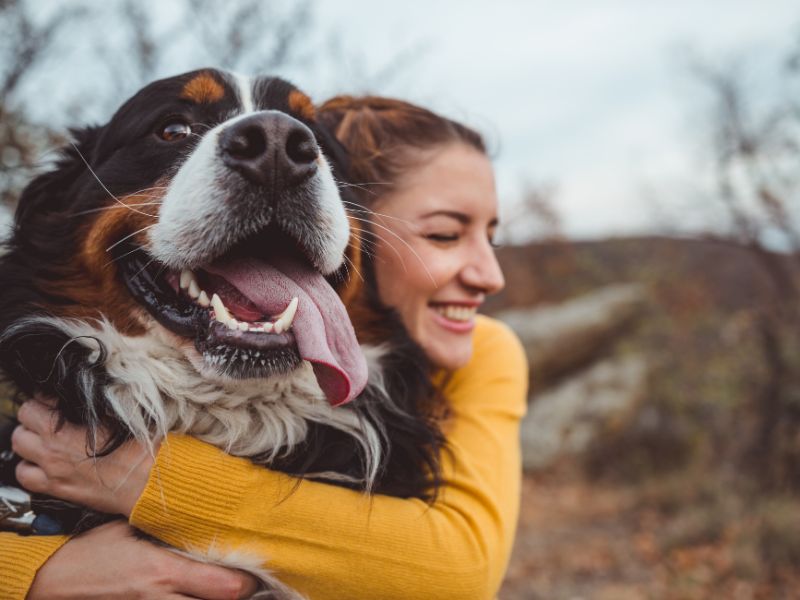Our dogs can’t easily talk to us, so understanding their health cues is important, especially when it comes to your dog’s constipation. Constipated dogs may not look or act like you’d think they would, so here are some ways to tell if your best friend is suffering from dog constipation and how you can help them have a regular, healthy bowel movement.
What Is Dog Constipation?
The term “constipation” just refers to the irregular or difficult passage of stool. Essentially, when your dog is constipated, it means they are having a hard time processing and eliminating their waste. Just like in humans, a dog’s digestive tract can be sensitive. While mild constipation might be something that goes away rather quickly as their gut handles the situation, severe constipation can cause significant discomfort and even lead to more critical health issues.
Recognizing the Symptoms of Dog Constipation
Your dog might not be able to verbally communicate, but their behavior can speak volumes. Here are some dog constipation symptoms to look out for:
- Loss of appetite or refusal of their regular dog’s food
- Frequent squatting without producing normal stool
- Dry stools that are hard to the touch
- Infrequent bowel movements, especially if more than two days pass without one
- Excessive straining or squatting frequently
- Signs of discomfort like whimpering, crying, or shaky legs when they’re trying to poop
- Mucous or blood in their stool
- Vomiting or signs of stomach upset
My Dog Is Constipated–Why?
Several factors can contribute to a dog’s constipation. Some might be due to simple dietary changes, while others could signify underlying causes that need more attention. Here are some potential reasons for constipation in dogs:
- Sudden changes in the dog’s diet or introduction of new foods.
- Consuming indigestible objects, like dog bones or toys.
- Ingestion of hair or foreign material leading to blockages.
- Intestinal parasites disrupting the digestive system.
- Medical conditions like hypothyroidism, hyperparathyroidism, or neurological diseases.
- Lack of physical activity or a sedentary lifestyle.
- Injuries or abnormalities in the pelvic region.
- Older dogs are prone to digestive issues and more likely to be constipated.
Diagnosing Constipation in Dogs
If you suspect your dog is constipated, you may first want to look at their diet and see if there are any adjustments you can make to help. Sometimes, a temporary issue with a dog’s digestive system will result in a hard poop to pass, but then they get back on track with the right gut diet. Chronic constipation can come from poor gut health.
However, if your best friend seems to suffer from constipation and doesn’t poop for an extended period of time, you want to check with your vet immediately. They’ll look into why your dog isn’t pooping. To do so, they’ll first conduct a physical exam where they’ll check the dog’s abdomen to feel for hard fecal matter. They may consider a rectal examination, but additional advanced diagnostics can include X-rays, blood tests, and ultrasounds to pinpoint the underlying cause of the constipation. If they’ve determined there is no blockage (which can be deadly), they likely will make recommendations to relieve constipation.
Effective Options to Treat Constipation
Once diagnosed, treating constipation is important. Not only to relieve your dog’s discomfort, but to help ensure the gut health gets back on track. Some treatments might include:
- Manual removal of fecal material, especially in severe cases of impaction.
- A prescribed stool softener or medications to stimulate regular bowel movements.
- Ensuring your dog has consistent access to fresh water to prevent dry stools.
- Dietary modifications, like introducing canned food (some vets will suggest canned pumpkin or even pumpkin pie filling) for added moisture or adjusting fiber intake.
Bernie’s Perfect Poop: The Perfect Help For A Constipated Dog
While there are many different things that dog parents do when their dog is constipated, the best way to help keep your dog regular and treat constipation is to ensure their digestive health is optimal.
That’s why supplements like Bernie’s Perfect Poop can be a game-changer for most dogs and their guts health. Packed with essential ingredients like fiber, prebiotics, and probiotics, it works to maintain a balanced gut flora and this is the number one way to prevent dog constipation. Perfect Poop has both soluble and insoluble fibers in Perfect Poop, sourced from Miscanthus grass, flaxseed, and dried pumpkin, and they can naturally help in relieving constipation. This combination helps make sure their microbiome stays balanced and healthy, and that can help end their dog constipation issues.
The truth is, preventing dog constipation is they best way to deal with it, and also the easiest. When a constipated dog eats a balanced diet, gets regular exercise, and stays hydrated, that can go a long way in maintaining regular bowel movements.


